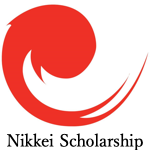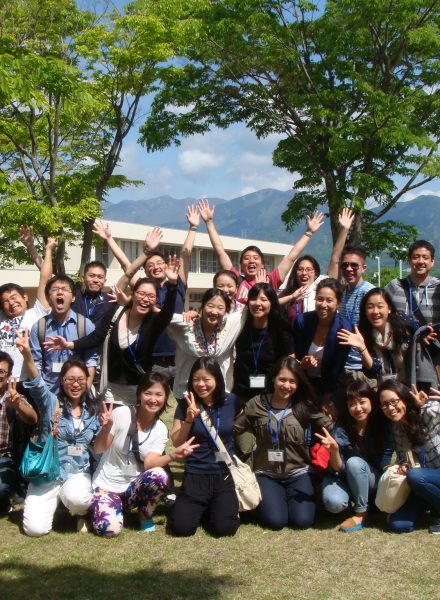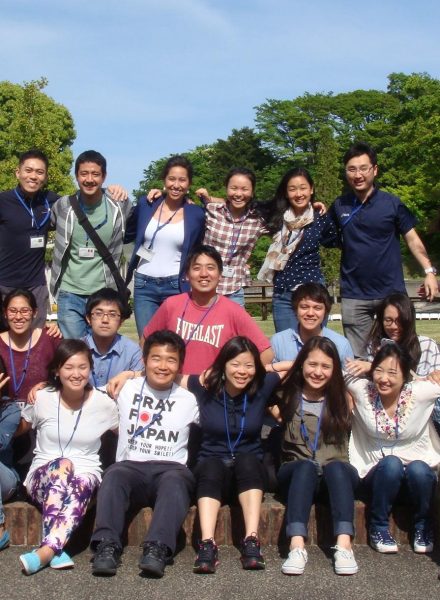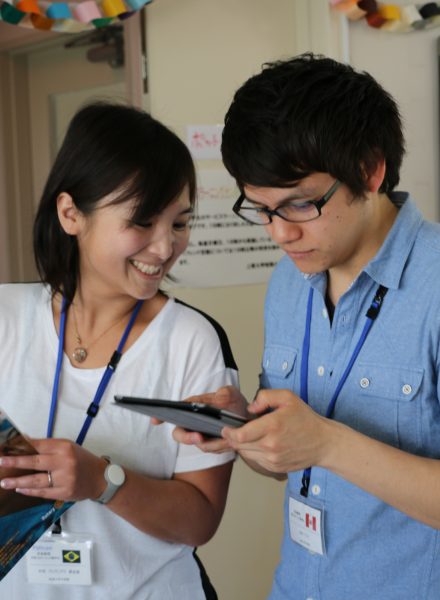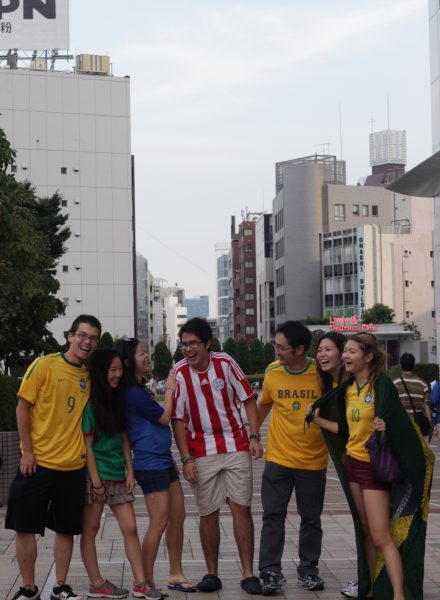Gusutavo Shiguetoshi Kishimoto
Peru
Lives of the Nikkei scholarship ‘Dream Come True Project’ students~Gusutavo Shiguetoshi Kishimoto
Why did you decide to study in Japan?
My passion in life is to help those who help others. One of the most excruciating anguishes is the frustration and helplessness in the face of cancer. In Peru, the highest mortality from cancer is due to advanced gastrointestinal cancers. The best place in the world to learn how to timely detect and treat these neoplasms is at the National Cancer Center in Tokyo, Japan.
How was your life in Japan?
My experience in Japan is a milestone in my life. It helped me strengthen my roots, imagine what person I would like to be, and push me towards.
Feeling welcomed among my senpai, encouraged me a lot to adapt to a country, where I couldn’t communicate well. Although the scholarship program gave me all the facilities and flexibility to realize my dreams, my NFSA family embraced and supported me to fulfill my goals within my stay in Japan.
Moreover, the scholarship program gave us many opportunities to learn Japanese-style management skills (through seminars, talks, visits to factories, organizing contests, cultural exchange with students, etc.) to be better leaders when returning to our countries.
Tell us about your past study or research.
Currently, I am focused on optimizing the way of early detection and timely treatment of gastrointestinal cancers.
It is not easy to concentrate on writing and publishing articles, but I know how important is to write down ideas to improve them later on.
In fact, the publications that I was able to make in Japan, were decisive for my reintegration after 6 years far from Peru.
Did your consciousness as a Nikkei change in any way through studying in Japan?
Of course. My experience in Japan did change my vision as Nikkei. While growing up in Lima, I do not remember feeling proud of having Japanese roots. I never studied at a Nikkei school. I could say, I felt moments of racial discrimination.
My first approach to the Nikkei community was during my university life. With my mentors Dr José Watanabe and Dr Juan Miyagui, I was able to strengthen the values learned at home. Thanks to both, I was able to meet Dr Tatsuya Yamada, who welcomed me in Japan and guided my steps. Through my professors Dr Kunihisa Miyakawa, and Dr Yutaka Saito’s team, I learned that Japaneses (who were dying of cancer after World War II) could rise and lead worldwide programs of early cancer detection.
I always wondered, how could people, who doesn’t know each other, can collaborate together for a best future? Fate answered me, by experiencing the horror and pain of a devastating earthquake and tsunami in 2011. When we helped to clean up debris in the disaster zone of Miyagi Prefecture, I saw the courage of the survivors, and how they helped each other, as a big family.
This made me understand that helping those that help many others based in selflessness, tolerance, empathy and endurance; is a start point to forge a better future for generations to come. I think that the Nikkei concept add these values to help many countries to thrive.
Tell us about your plan after graduation.
Currently, I am an assistant gastroenterologist at the Japanese Peruvian “Centenario” Clinic and the Japanese
Peruvian Polyclinic. The health departments of the Japanese Peruvian Association offer me the best place to adapt the Japanese method for early detection and timely endoscopic surgery.
Please give a message to students who are considering studying in Japan.
Nowadays, Japan offers many chances to study different careers in Japanese and/or English. It also offers the experience of living with respect to nature and to others. I think it is very important to know where we want to go, and to consider how much this experience in Japan will help us for our future. I think, it’s very different to want to visit Japan, and then see what to do with what we’ve learned.
In Japan, I had the opportunity to travel, learn, and feel a different way of life, that I would like to adapt in my country, for the benefit of many. One can learn a lot from people, who suffer periodically from natural disasters and has emerged from the ashes of a nuclear war.
